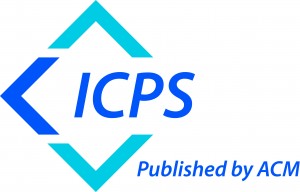Workshop – 7th Novel High Performance Computing algorithms and platforms in Bioinformatics (BIO-HPC’19)
The seventh edition of the BIO-HPC workshop (http://bio-hpc.eu/BIOHPC2019) is going to take place in conjunction with the 49th International Conference on Parallel Processing 2019 (https://www.hpcs.cs.tsukuba.ac.jp/icpp2019/), Japan. BIO-HPC was previously co-located with IWBBIO (2013-2016). Due to BIO-HPC strong focus on HPC architectures and parallel processing we decided to move to ICPP 2019.
ABOUT THE WORKSHOP
The workshop on Novel High Performance Computing algorithms and platforms in Bioinformatics gears to gather recent work on both algorithm design and hardware platforms to deal with the emergent challenges of the next century in the field of Bioinformatics, Computational Biology and Computational Chemistry. We are looking for disruptive proposals presented from a holistic perspective that really make a step forward in these fields. In this regard, one of the main aims of the workshop is discussing about the main trends in parallel processing, algorithm definition and problem-domain requirements altogether, which may anticipate future solutions to be translated into real benefits to the society. With that in mind, we are thinking on creating the right atmosphere for a discussion of research opportunities in Bioinformatics, Computational Biology and Computational Chemistry from a multidisciplinary point of view within the computer science area.
Additionally, proposals may rather be reflective of a broader industry trend. High-Performance Computing (HPC) systems are becoming crucial to the progress of science and technology. With particular focus on (but not limited to) the chemical and pharma industry, we want to provide a forum to discuss how to translate these results into commercial uptake of new HPC technologies.
The goal of BIO-HPC’19 is therefore to bring together researchers from different fields of Parallel Processing, Computer Architecture, Soft Computing and Bioinformatics to provide a forum for discussing future research directions and challenges to translate academic results into real benefits for the society. In conclusion, we look for original, high-quality research papers, clearly focused on multidisciplinary research that combines both Parallelism and Algorithm as applied to any possible of Bioinformatics, Computational Biology and Computational Chemistry problem.
TOPICS OF INTEREST
In particular, contributions are solicited on, but are not limited to, the following topics:
- Programming Models and Systems for Multicore, Manycore, and Clusters of Multicore/Manycore.
- Parallel Stochastic Simulation.
- Biological and Numerical Parallel Computing.
- Parallel and Distributed Architectures.
- Emerging Processing Architectures (e.g. GPUs, Intel Xeon Phi, FPGAs, mixed CPU-GPU or CPU-FPGA, etc).
- Parallel Model Checking Techniques.
- Parallel Algorithms for Biological Analysis.
- Cluster and Grid Deployment for System Biology.
- Soft Computing Algorithms in Bioinformatics, Computational Biology and Computational Chemistry.
- Application of HPC Developments in Structural Bioinformatics, Computational Biology and Computational Chemistry.
- Biological and Chemical databases for Big Data Management.
- Automated Verification in Computational Biology.
- System Infrastructure for High Throughput Analysis.
- Biomolecular Structure Prediction and Large Molecular Systems.
- Molecular Visualization of Biological Big Data.
- Large Scale Proteomics.
IMPORTANT DATES
- Paper submission: May 4, 2019.
- Notification of acceptance: May 21, 2019.
- Camera-ready paper: June 7, 2019.
- Workshop: August 5, 2019.
ORGANIZATION
Co-organizers
- José M. Cecilia, Universidad Católica de Murcia (UCAM), Spain, (jmcecilia at ucam.edu)
- Horacio Pérez-Sánchez, Universidad Católica de Murcia (UCAM), Spain (hperez at ucam.edu)
- Federico Silla, Universitat Politècnica de València (UPV), Spain (fsilla at upv.es)
Technical Program Committee
- José L. Abellán, Universidad Católica de Murcia (UCAM), Spain.
- Angel Goñi-Moreno, Newcastle University, United Kingdom.
- Manuel Ujaldón, University of Málaga, Spain.
- Sandra Gesing, University of Notre dame, USA.
- Ivan Merelli, National Research Council, Genova, Italy.
- Daniele D’Agostino, National Research Council, Genova, Italy.
- Martyn Amos, Manchester Metropolitan University, United Kingdom.
- Jean Fred Fontaine, University of Mainz, Germany.
- Ángel Goñi-Moreno, Newcastle University, UK.
- Baldomero Imbernón, Universidad Católica de Murcia (UCAM), Spain.
- Javier García Blas, Universidad Carlos III de Madrid, Spain.
- Joanna Kolodziej, Cracow University of Technology, Poland.
- Hesham H. Ali, University of Nebraska at Omaha, USA.
- Ramón Doallo Biempica, Universidad de la Coruña, Spain.
- Basilio Fraguela Rodríguez, Universidad de la Coruña, Spain.
- Alexey Lastovetsky, University College Dublin, Ireland.
- Pedro Tomás, INESC-ID, University of Lisbon, Portugal.
- Mario Cannataro, National Research Council, Genova, Italy.
- Hugo Verli, Universidade Federal do Rio Grande do Sul, Brazil.
- Vincent Hindriksen, Stream HPC, The Netherlands.
Tentative Program
TBA
PAPER SUBMISSION GUIDELINES
Submissions may not exceed 8 pages in PDF format including figures and
references, and must be formatted in the ACM format located at: https://www.acm.org/publications/proceedings-template. Submitted papers must be original work that has not appeared in and is
not under consideration for another conference or journal. Work in
progress is welcome, but first results should be made available as a
proof of concept. Submissions only consisting of a proposal will be
rejected. Please visit the workshop website for additional details.
Submission site:
Contact us using either one or preferable both email addresses:
- José M. Cecilia, Universidad Católica de Murcia (UCAM), Spain, (jmcecilia at ucam.edu)
- Horacio Pérez-Sánchez, Universidad Católica de Murcia (UCAM), Spain (hperez at ucam.edu)
- Federico Silla, Universitat Politècnica de València (UPV), Spain (fsilla at upv.es)

